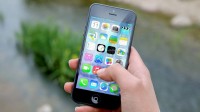Supreme Court: App Store Customers Can Now Sue Apple
May 14, 2019
In what could become a landmark decision, the Supreme Court has ruled to allow individual iPhone users to sue Apple in antitrust violation cases related to the tech giant’s App Store. In a 5-4 decision written by Associate Justice Brett Kavanaugh, the Supreme Court agreed with a lower court ruling that determined App Store customers could sue Apple for allegedly driving up prices by forcing them to purchase apps exclusively from the App Store. Apple lost its argument that was based on the contention that third-party developers set the prices for apps. While Apple holds steady in its belief that it does not represent a monopoly, the ruling could have future ramifications regarding consumers who seek to sue other app sellers for antitrust violations.
“If accepted, Apple’s theory would provide a road map for monopolistic retailers to structure transactions with manufacturers or suppliers so as to evade antitrust claims by consumers and thereby thwart effective antitrust enforcement,” wrote Justice Kavanaugh in the 14-page opinion.

“The antitrust suit alleges consumers pay inflated prices because Apple requires that all phone software be sold and purchased through the company’s App Store,” reports The Wall Street Journal. “Apps would be cheaper if software developers could sell them directly and bypass Apple as a middleman, the lawsuit alleges. Apple typically takes a 30 percent cut of every app it sells, and a 15 percent cut of subscriptions sold through the App Store after subscribers’ first year.”
Apple’s rules for selling apps are somewhat different than Google’s rules. Although Google also collects a 30 percent cut of all apps that are sold in its Google Play Store, Android phone users are free to purchase their apps elsewhere.
The Supreme Court did not address the merits of the consumers’ specific claims, which include a complaint against Apple rules that they claim affects app pricing, such as the rule for all apps to end in “99 cents” (for example: $1.99, $2.99, $3.99). Apple says it is confident it will ultimately prevail, since the App Store is not monopolistic and its marketplace offers “the safest, most secure and trusted platform for customers.”
However, if the consumers “ultimately win, the case could change the way apps are sold and make Apple liable for significant monetary damages,” notes WSJ. “The case could take one to two years, if not longer, to resolve, and several important legal issues must still be settled.”
The ruling against Apple should be of significant concern to Silicon Valley and other tech giants such as Amazon, Google and Microsoft. “The justices’ decision comes at a moment when prominent academics, tech executives and even U.S. presidential candidates have called for the federal government to probe — and potentially sanction — Apple and other tech companies out of concern they harm competitors and consumers,” explains The Washington Post.
“Federal regulators recently have launched a special task force to examine if the industry poses threats to competition and consumers. And 2020 presidential candidates, especially Democratic Sen. Elizabeth Warren, have threatened even tougher regulation of tech.” In addition, major companies including Apple and Google have been facing increased scrutiny and fines on a global stage, most notably in Europe.

No Comments Yet
You can be the first to comment!
Sorry, comments for this entry are closed at this time.